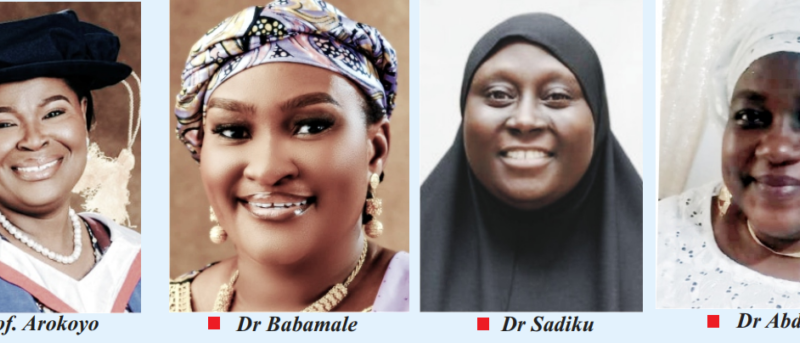
IBS now positioned for better service delivery – Kadiri
20 Sep, 2024

Women in the academia, particularly in the services of the University of Ilorin, have been encouraged to always strive to strike a balance between their domestic responsibilities and academic works.
This advice was given by a cross section of female lecturers of the University who spoke with UNILORIN Bulletin last Wednesday (September 11, 2024) in their various offices.
The dons explained that this has become necessary in view of the evolving changes in the academic landscape, which is breaking barriers and reshaping the future of higher education.
They added that everything must be done to ensure that the professional engagements of female lecturers do not affect their homes negatively.
Prof Bolanle Elizabeth Arokoyo of the Department of Linguistics explained that balancing academic responsibilities with personal life is indeed a challenge, particularly because academic engagements often demand a high level of commitment.
She noted that “it can sometimes feel overwhelming between teaching, research, publishing, and administrative duties. However, I have found that setting clear priorities and boundaries is the key to balance”.
She recalled that one strategy she uses is time management because in the academia, there is always another project, conference, or committee to join, but being selective about which opportunities to take on has helped her to avoid burnout.
She also suggested the delegation of responsibilities, adding that while it can be tempting to take on everything, women should learn to trust colleagues and research assistants on handling certain responsibilities for them.
Prof. Arokoyo, who is a member of the Management Board of UNILORIN 89.3 FM, advised young women aspiring to join the academia to believe in their abilities and seek out mentors who can guide them through the process.
While noting that academic engagement can be challenging, she explained that persistence, a clear sense of purpose, and the right support system would always see them through.
Also speaking, Dr Nusirat Aderinsola Sadiku of the Department of Forest Resources Management maintained that female lecturers are increasingly finding themselves at the crossroads of professional aspirations and domestic responsibilities.
She noted that women manage responsibilities at home, including caring for and supporting their children, through their academic pursuits.
She emphasised that “the balance is delicate and requires constant adjustment, as it often feels like I’m running on two parallel tracks, each demanding my full attention”.
Dr Sadiku encouraged women in academics to be time conscious and also learn to delegate duties as these will allow them to have enough time for their families.
On her part, a lecturer at the Department of Industrial Chemistry, Dr Halimah Funmilayo Babamale, urged female lecturers to always seek the understanding of their spouses to enable them to devote quality time to their careers.
She explained that when a woman secures the understanding of her husband she would be able to concentrate fully on her official responsibilities without any fear.
Dr Babamale, who is also a member of the Technical Committee on Developing and Implementing Innovation Entrepreneuship Certification, advised the University authorities to prioritise campus accommodation for female lecturers and their spouses, saying that living on the campus would reduce the challenges that come with combining work with family tendering.
A former Coordinator of the Department of Criminology and Security Studies, Dr Mansurat Isiaka, said that female lecturers must be deliberate in seeking a balance between their jobs and their families.
She remarked that it is important for them to engage the assistance of house help who would assist them in the discharge of some of their domestic responsibilities.
Dr Isiaka also implored the various trade unions on campus to establish crèches within the University where young children can be taken care of while their mothers work.
In her view, a Senior Lecturer at the Department of Educational Management, Dr Nimota Jibola Kadir Abdullahi, said that it is very important for female academics to always be organised as she also advised them to create harmony between their desires for a successful career and a fulfilling home.
She explained that the achievement of the two is possible through careful planning and implementation such as designating specific times for the discharge of tasks.
While advising female lecturers to always find time to rest for their well-being, Dr Abdullahi explained that a woman can decide to attend to family demands in the evenings or weekends while other times could be reserved for the discharge of official responsibilities.
Dr Abdullahi also enjoined young female lecturers to seek mentorship by approaching senior colleagues of the same gender for guidance and advice as she also implored her colleagues to always set realistic goals for themselves.